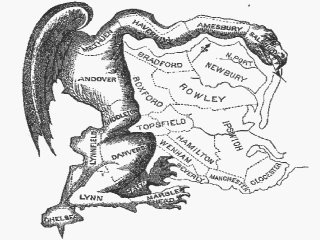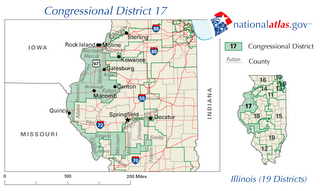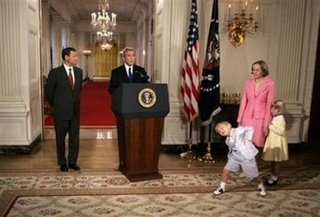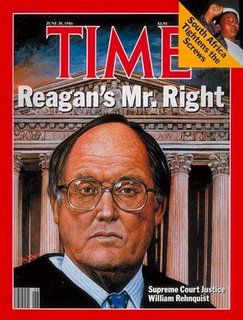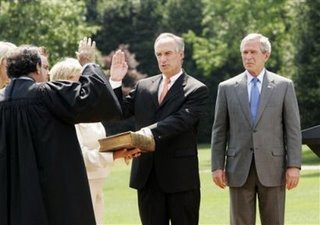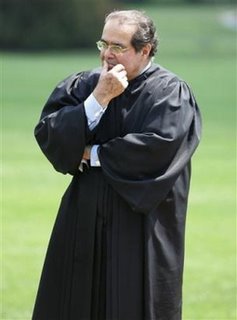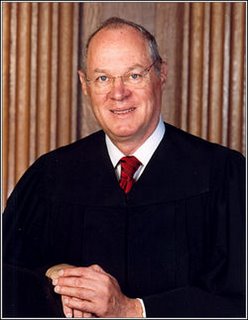Hamdan
Orin Kerr on the difference that the decision will make... "...I think Hamdan is important but not earth-shattering. On one hand, the Supreme Court made clear that it is very much a player, and it upped the ante from its 2004 decisions. If the 2004 decisions rejected the concept of a law-free zone, Hamdan rejects the concept of a Congress-free zone. On the other hand, the Court has upped the ante only a notch. It has avoided a grand confrontation between the Executive and the Judiciary, at least for now."
Jack Balkin calling the decision "democracy-forcing", ensuring that Congress will be more involved in the War on Terror.
Randy Barnett at Volokh reacting to Balkin and identifying the two major errors of the Bush Administration's prosecution of the War on Terror.
John Yoo is critical of the decision (shocking, I know)... "The circus that was the trial of Zacarias Moussaoui shows the dangers in trying to use normal courtroom rules to prosecute terrorists intent on harming the USA."
Senator Specter has some legislation ready. It is more of a response to the previous Rasul v Bush decision, but it fits here too.
Mark Tushnet analyzes the decision and has some advice for Supreme Court litigators... "As long as Justice Stevens is on the Court, never, never rely heavily on an opinion from which Justice Rutledge dissented strongly." Stevens clerked for Rutledge and apparently wrote a hell of a lot of the opinions.
Stephen Bainbridge suggests that Congress could just strip the courts of their jurisdiction under Article III Section 2. It's a pretty gutsy move, though.
Orin Kerr also had this handy "How to Navigate the Hamdan Decision" breakdown...
Justice Stevens wrote the main opinion - 73 pages long - which is a 5-Justice majority opinion in part and a 4-Justice judgement of the Court in part.Happy reading.
Justice Breyer wrote a 1-page concurrence joined by Souter, Kennedy, and Ginsburg.
Justice Kennedy wrote a 20-page concurrence, parts of which were joined by Souter, Ginburg, and Breyer.
Justice Scalia wrote a 24-page dissent on the jurisdictional and abstention issues that was joined by Thomas and Alito.
Justice Thomas wrote a 49-page dissent on the merits, joined by Scalia and in part by Alito.
Justice Alito wrote a 10-page dissent on the merits, joined in part by Thomas and Scalia.
